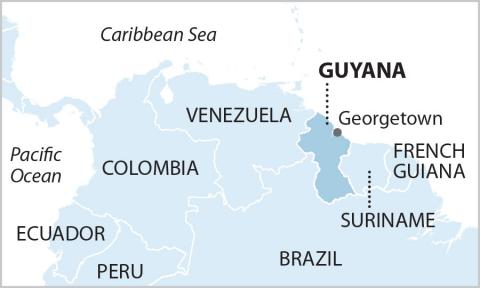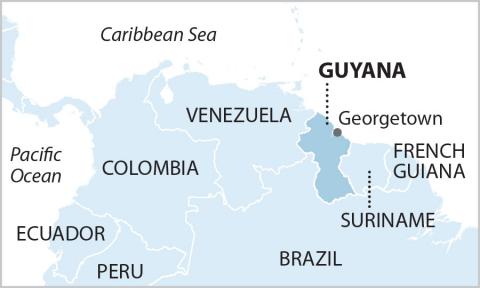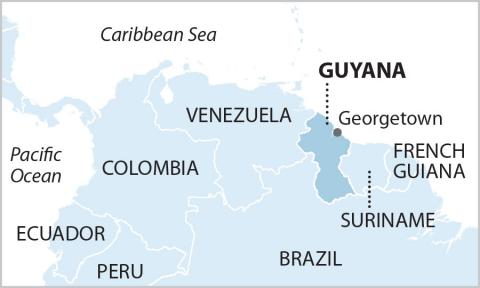A fistful of protests, as Guyana continues to rubber-stamp ExxonMobil drilling permits
Key Findings
Guyana EPA ignores environmental review law needed to address persistent flaring
Citizens ask court to step in and cancel permit until the EPA of Guyana gets to the bottom of the flaring issue and ensures safety of people and environment
A fifth case objecting to Guyana’s handling of the offshore Stabroek oilfield was filed last week. The offshore extraction project is a joint venture of ExxonMobil, the Chinese National Offshore Oil Company (CNOOC) and Hess Corp. through a contractual relationship with the government of Guyana. The latest case objects to the government’s rubber-stamp approval of a new environmental permit for ExxonMobil’s Liza 1 operations in the Stabroek field.
The plaintiffs contend that when a permit expires, the law requires a new permit application and review, particularly when conditions have changed. On May 31, Guyana’s government simply issued a new permit for the Liza 1 oil field, without conducting a new review.
Table: ExxonMobil Guyana offshore project has spurred five formal protests

Guyana is in a hurry to develop its oil and gas reserves. It is facing the inevitability but unpredictability of a major reduction in demand for oil and gas as a result of global responses to climate change. Its failure to conduct a proper review of the new Liza 1 permit, however, leaves pollution and climate risks unaddressed. ExxonMobil claims it has discovered 11 billion barrels of oil off Guyana’s coast. It currently has approval to work in three fields: Liza One, Liza Two and Payara. Liza One and Liza Two are actively producing oil.
The requirement for a new permit process for Liza 1 is not just paperwork. It is essential to protect the public. Given that greenhouse gas emissions are at the center of the discussion of this project, it is also essential for addressing climate impacts.
Guyana already lost one lawsuit. The country originally granted the Liza 1 project permit for 23 years, cutting corners on public review. Citizens sued and won. Now Guyana must review the conditions of Liza 1 every five years. Failure to conduct a proper review flies in the face of the court’s directive.
A major controversy surrounding the project is its unplanned (non-routine) flaring of gas to the atmosphere. In an original environmental impact assessment, ExxonMobil, the field operator, told Guyana it could guarantee zero non-routine gas flaring. Faulty equipment, however, caused ExxonMobil to flare gas from almost the first day of production in 2019.
Amid public outcry, the government imposed a fine on ExxonMobil, but also changed the permit to allow some flaring—a decision that is the subject of another legal challenge brought earlier this year. Citizens sued in January. The case and the public await a decision from the court.
It would have been more prudent for Guyana to conduct a new environmental impact analysis, through a permit review process. A review would have provided the public with an analysis of the failure to prevent non-routine flaring, ExxonMobil's equipment repairs, and a plan to solve the problem. Once again, though, the government chose to cut corners.
The existing agreement that covers the Liza 1 project is already a bad deal for Guyana. The oil companies receive an unfair revenue split. Guyana cannot close its budget deficits because it is receiving too little revenue from the Liza project. At the same time, Guyana has provided substantial tax giveaways to the oil companies and has handed them a lucrative decommissioning deal that a March 2022 IEEFA analysis found will allow the three companies to pocket a total of $3.2 billion.
Finally, while this case is a challenge to the government of Guyana, it is also an example of continued mismanagement by ExxonMobil.
The government’s decision to ignore public concerns about the project and to push the new permit through without a proper review only makes matters worse for the people of Guyana.


















